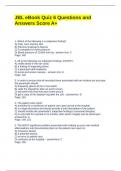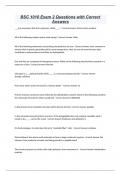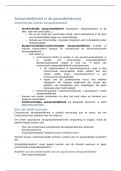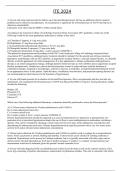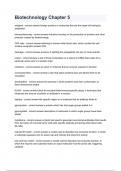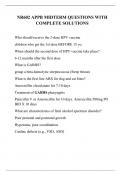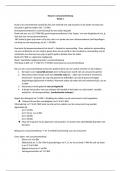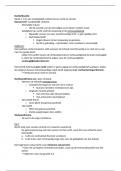Exam (elaborations)
JBL eBook Quiz 6 Questions and Answers Score A+
- Course
- Institution
JBL eBook Quiz 6 Questions and Answers Score A+ 1. Which of the following is a subjective finding? A) Pale, cool, clammy skin B) Obvious respiratory distress C) A complaint of chest pressure D) Blood pressure of 110/60 mm Hg Ans: C Page: 149 2. All of the following are subjective find...
[Show more]
